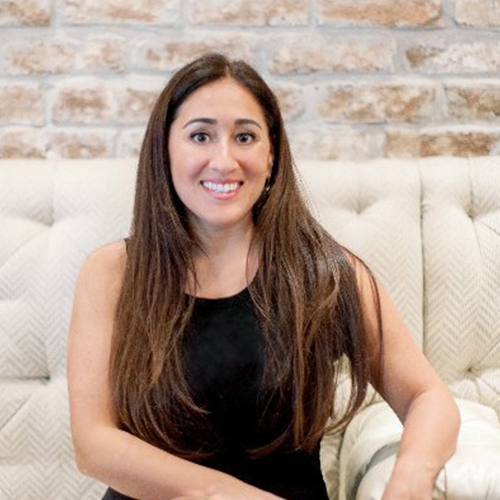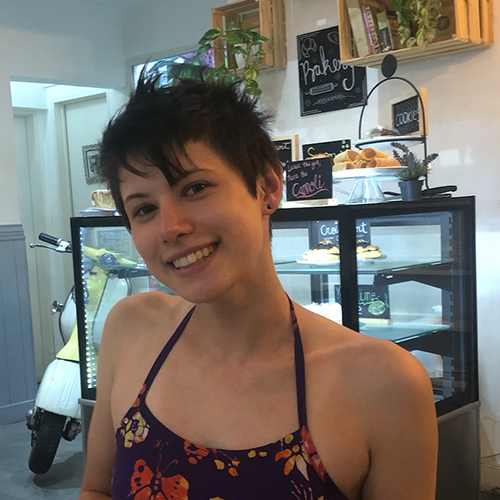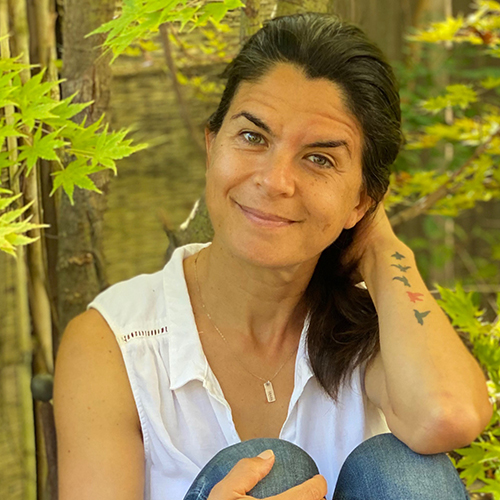Dreaming the Phoenix considers how current technological interfaces miss an opportunity to access collective dreaming on a universal archetypal symbol, like the Phoenix, which can yield new mythologies in the unique, imaginative, elastic cognition ongoing during dreams and semi-lucid states. Thirty dream prompts across thirty days invite participants to explore the imaginal realm and lucid dreaming to influence processes of memory consolidation, creative insight generation, gist extraction, and emotional regulation that are so deeply sleep-dependent. In their own individual journey of self-discovery through waking or lucid dreams, participants experience how dreaming as a group may or may not cultivate a field of resonance.
Tziporah Rebbeck and Biliana Angelova in Conversation with Kythe Heller. Eliza Yvette Esquivel in Conversation with Grace Jackson.
An Interview with
Eliza Yvette Esquivel
Eliza Yvette Esquivel is an executive by day and novice lucid dreamer by night. She has maintained a meditation practice since 1989 and has nurtured a fascination with dreams, the imagination, and spirit since childhood.
Interview by Grace Jackson.
First of all, could you introduce yourself and tell me what brought you to Vision Lab?
My name is Eliza Yvette Esquivel and Kythe Heller is a friend of mine. I've known her for a very long time. She started a writers group in Brooklyn and I was a poet at the time and was part of her writers’ collective called Lion House. She and I stayed in touch over the years. I also want to mention that I started meditating in 1989 and in my twenties, I spent six years in an ashram living a strict spiritual life. So, by the time I met Kythe in Brooklyn, she and I already shared a spiritual background and a love of meditation, as well as of poetry.
Could you say some things about your project—how it came about and what sort of shape it's in right now?
Our project is called Dreaming the Phoenix. It’s a lucid dreaming experiment where we’re providing 30 dream prompts for 30 days of dreaming. We’re trying to understand what constitutes a dream prompt and how to guide ourselves and others through experimenting with lucid dreaming.
The project came about totally by accident. Independent of Vision Lab, about six weeks before COVID hit I was working on a project about the sphinx. I stumbled into one of these archetypical synchronicities that have happened at different times in my life where all of a sudden, I happen across a symbol or an idea that so captures my imagination that I start digging into it a little bit more. And then that leads me to something which then leads me to something else in a series of revelations. The older you get and the more this happens to you, the more you recognize it when it's happening.
In this case, I happened to pick up a book, a dictionary of symbolism. And I'm a big believer in bibliomancy—the idea that you can just open a book and wherever it opens, it's going to give you some sort of a message. And it opened to this page about the sphinx and it fascinated me because not only was this a Greek mythological creature—a woman with the body of a lion, eagle’s wings, serpent’s tail—but then right next to it is the picture of the Great Sphinx of Giza. And I thought to myself, how did we get as a civilization from one to the other? How do these two things relate to each other? The more I looked into it, it was like I leaned on a door, the door would open into this whole other world that I didn't know existed. And then I would go into that world. And at the end of it, there would be another door. It was such a magical experience for me that I wanted to bring other people on that journey.
That was the project I was working on, creating a video that would replicate that journey of discovery for other people. Then, when the Vision Lab team got together and were looking at the phoenix, I thought, I wonder if I could do the same thing with the phoenix? Just allow myself to ask questions and open doors. Sure enough, I found myself having a similar experience.
At the same time, Tziporah Rebbeck another Vision Lab member was talking about lucid dreaming. As a meditator, I had all these questions about the distinctions between reality, dreaming, and meditation, about the subconscious. So I contacted Tziporah and we talked and we decided to try making dream prompts using the symbology of the phoenix.
You described your discovery of the sphinx image as a moment of “archetypical synchronicity.” Is that a technical term? It sounds Jungian.
I don't know if it's a technical term, I just make things up.
Even better.
Jung talks about archetypes and the collective unconscious and this universal understanding and it's such a great mystery. But having been a poet, having studied English literature, one starts to notice and recognize the universality of certain symbols. You know – the egg, the sun… And every culture has a creation myth. And if you pay attention, you start to notice patterns across cultures. So, when I talk about archetypal synchronicity, I’m describing what happens when I just open a book and it opens to something that captures my attention and leads me into a series of revelations. It's almost as though it's beckoning me to reconnect with the collective unconscious, not just that particular archetype or that particular symbol, but the whole world.
Do you think that the COVID-19 pandemic offers us a chance to reconnect with the collective unconscious?
I do. I believe in reincarnation. I believe that we all choose our incarnations and we choose the experiences that we're going to have so that we can learn from experience and grow in a kind of spiral, reconnecting with the divine and becoming closer and closer to our own divinity. For some reason, we learn from loss and we learn from suffering. There's a part of me and, I think, of all of us that wishes it didn't have to be that way, that wishes we could just learn in school with balloons and stuff, instead of it having to be so hard. But I do think that it gives you an opportunity to look at your life and try to articulate for yourself, what is the meaning of this? What is the meaning that I can create out of this? And with the time that I have left in this incarnation, how can I make it amazing? I think the pandemic has done that for us, and the only way to address any of that is by going inward. In very simple terms, the pandemic has made us all go inside our little houses and be with ourselves and be more introspective and look for answers inside rather than outside.
How would you describe your creative process?
Academically, I'm trained in communications as something called an account planner, which a lot of people don't know about unless they work in advertising. It’s about bringing together interdisciplinary knowledge and distilling it, architecting it, in a way that allows creatives to come up with ideas for communication. It's very specialized and I've been doing it for about 20 years all over the world. I recently decided to take a sabbatical and before I did, I gave a talk to people in my industry about the future of account planning. I talked about the importance of creativity and the fact that this very specific, somewhat hidden discipline that we've developed is so special and powerful that it should be applied to other industries, too—to social problems, and all kinds of things.
During my sabbatical, what ended up being fascinating is that the dream prompts we developed for Vision Lab are exactly what I would have made to help an advertising creative come up with creative ideas, except for these are sort of springboards into dreams. I've gone through this evolution myself, where I entered into a narrow profession and then maxed out on it and then sort of backed out and said, okay, where else could this apply? Over this sabbatical period, rather than thinking about myself as an artist, I’ve realized that my role is that of a muse. So, I’ve been thinking about what it means to be a muse and how to create inspiration for art and creativity? I call it the art before the art.
Do you have a spiritual practice, and if so, how has it inflected your project?
I do have a spiritual practice, yes. I meditate every day, sometimes several times a day. I’m actually not a big fan of the term “mindfulness,” but for lack of a better term, in addition to meditating twice a day, I practice different techniques throughout the day, to try to keep myself connected to a more heart-centered perspective. It helps with relationships and with processing information and experiences, so that you can respond in a way that feels true to the integrity of your intention, as opposed to just reacting and then looking at your reaction and thinking, I wish I would've said that or done that differently.
In terms of a broader spiritual understanding, I’ve explored many different religious traditions. I was raised Catholic. I spent time in an ashram here in the states but led by an Indian spiritual teacher. I’ve spent a lot of time exploring Tibetan Buddhism. My husband is Israeli, which has connected me to Judaism and the Kabbalah. I'm very open to all of it because I feel like if the Source/Creator is at the top of the mountain, then religious traditions offer us different ways to get there, to the same source.
I’ve thought a lot about my time in the ashram this year. I spent six years in very intense spiritual practice. It was my whole life. Then, I went from the ashram to a job in advertising on Madison Avenue, which ended up being a twenty-year career. I thought, I’ve studied and practiced spirituality, now I'm going to go into the world and apply it. I had this idea that I’d put all this spiritual money in the bank and then I was going to go out into the world and spend it. What I've learned is that it doesn't work that way. You have to keep putting money in the bank every day, spiritually speaking. It’s a lifelong practice. That’s been a personal revelation for me in 2020.
Let’s move on to the idea of the phoenix and what it means to you.
Working on the dream prompts, I’ve found it amazing that this symbol is everywhere—across time, across cultures. It’s in our past, it’s in our future. To simply see the phoenix as a metaphor for death and rebirth, I think, really undersells what the symbol is trying to teach us about the nature of existence. I see it almost as an open secret about the nature of existence and the nature of creation itself.
What have you found to be permanent this summer, in the midst of so much change and loss?
Nature is a constant for me. I live in Forest Hills, New York City and our apartment looks out at a courtyard with trees, which have just been doing their thing this whole time. They keep me connected to nature. Space, outer space, is another constant. I recently got the opportunity to spend a week away in upstate New York in an Airbnb that had a beautiful outdoor patio and a fire pit. Every night we would go outside and make a fire and just lay there and look up at the stars.
In the phoenix mythology, there's this idea that the phoenix builds its nest out of cinnamon and all these beautiful fragrant herbs before self-immolating. Do you have any ideas about what for you would constitute a nest? What sort of preparation would you make for the next journey?
I have a fixation with birds. I have them in every room of my apartment – pieces of art like little ceramic birds, a bird mobile, a Chinese scroll with a sparrow perched on a cherry blossom. They’re everywhere. This idea of the nest as a resting place, and of what you put in your resting place that allows you to renew and become new, that you’re then going to just let go of, in a kind of ritual… it’s almost like a sand mandala. Aside from meditating and nourishing my connection with nature, I think the most important thing I’ve done is bring good people around me. This is what I see as the deeper meaning of Vision Lab. Maybe in previous periods in time, this is the kind of experience that people were supposed to have alone. But I think that while reinvention is personal, it’s supposed to be shared. It's supposed to be a shared journey. It’s the opposite of the Egyptian mystery schools where only a select few held mystical knowledge. I think we’re meant to come together and fly together, you know? So, when I think about that nest, I think about the people that I've kept close, the people who I’m sharing this experience with. It’s as though the place where we rest is inside each other’s hearts.
What are your hopes and fears right now—personally, politically or spiritually?
I’m all about getting on with it. I’m actually very hopeful and excited about the future that we can create together, for those of us who have gone inside and looked at our shadows and recognized that we have a choice. We have a choice to create a world that is for everyone, that is set up for us all to grow together. I'm really hoping that more and more people decide that that’s where they want to focus their attention and their energy.
An Interview with Tziporah Rebbeck and Biliana Angelova by Kythe Heller
KH: Tziporah, so glad you could join us. What I'm really curious about, is your background as an artist and a dreamer and a maker. And how is it that you came to the kind of research project that has become Dreaming the Phoenix? Eliza Yvette Esquivel is an executive by day and novice lucid dreamer by night. She has maintained a meditation practice since 1989 and has nurtured a fascination with dreams, the imagination, and spirit since childhood.
Interview by Grace Jackson.
First of all, could you introduce yourself and tell me what brought you to Vision Lab?
My name is Eliza Yvette Esquivel and Kythe Heller is a friend of mine. I've known her for a very long time. She started a writers group in Brooklyn and I was a poet at the time and was part of her writers’ collective called Lion House. She and I stayed in touch over the years. I also want to mention that I started meditating in 1989 and in my twenties, I spent six years in an ashram living a strict spiritual life. So, by the time I met Kythe in Brooklyn, she and I already shared a spiritual background and a love of meditation, as well as of poetry.
Could you say some things about your project—how it came about and what sort of shape it's in right now?
Our project is called Dreaming the Phoenix. It’s a lucid dreaming experiment where we’re providing 30 dream prompts for 30 days of dreaming. We’re trying to understand what constitutes a dream prompt and how to guide ourselves and others through experimenting with lucid dreaming.
The project came about totally by accident. Independent of Vision Lab, about six weeks before COVID hit I was working on a project about the sphinx. I stumbled into one of these archetypical synchronicities that have happened at different times in my life where all of a sudden, I happen across a symbol or an idea that so captures my imagination that I start digging into it a little bit more. And then that leads me to something which then leads me to something else in a series of revelations. The older you get and the more this happens to you, the more you recognize it when it's happening.
In this case, I happened to pick up a book, a dictionary of symbolism. And I'm a big believer in bibliomancy—the idea that you can just open a book and wherever it opens, it's going to give you some sort of a message. And it opened to this page about the sphinx and it fascinated me because not only was this a Greek mythological creature—a woman with the body of a lion, eagle’s wings, serpent’s tail—but then right next to it is the picture of the Great Sphinx of Giza. And I thought to myself, how did we get as a civilization from one to the other? How do these two things relate to each other? The more I looked into it, it was like I leaned on a door, the door would open into this whole other world that I didn't know existed. And then I would go into that world. And at the end of it, there would be another door. It was such a magical experience for me that I wanted to bring other people on that journey.
That was the project I was working on, creating a video that would replicate that journey of discovery for other people. Then, when the Vision Lab team got together and were looking at the phoenix, I thought, I wonder if I could do the same thing with the phoenix? Just allow myself to ask questions and open doors. Sure enough, I found myself having a similar experience.
At the same time, Tziporah Rebbeck another Vision Lab member was talking about lucid dreaming. As a meditator, I had all these questions about the distinctions between reality, dreaming, and meditation, about the subconscious. So I contacted Tziporah and we talked and we decided to try making dream prompts using the symbology of the phoenix.
You described your discovery of the sphinx image as a moment of “archetypical synchronicity.” Is that a technical term? It sounds Jungian.
I don't know if it's a technical term, I just make things up.
Even better.
Jung talks about archetypes and the collective unconscious and this universal understanding and it's such a great mystery. But having been a poet, having studied English literature, one starts to notice and recognize the universality of certain symbols. You know – the egg, the sun… And every culture has a creation myth. And if you pay attention, you start to notice patterns across cultures. So, when I talk about archetypal synchronicity, I’m describing what happens when I just open a book and it opens to something that captures my attention and leads me into a series of revelations. It's almost as though it's beckoning me to reconnect with the collective unconscious, not just that particular archetype or that particular symbol, but the whole world.
Do you think that the COVID-19 pandemic offers us a chance to reconnect with the collective unconscious?
I do. I believe in reincarnation. I believe that we all choose our incarnations and we choose the experiences that we're going to have so that we can learn from experience and grow in a kind of spiral, reconnecting with the divine and becoming closer and closer to our own divinity. For some reason, we learn from loss and we learn from suffering. There's a part of me and, I think, of all of us that wishes it didn't have to be that way, that wishes we could just learn in school with balloons and stuff, instead of it having to be so hard. But I do think that it gives you an opportunity to look at your life and try to articulate for yourself, what is the meaning of this? What is the meaning that I can create out of this? And with the time that I have left in this incarnation, how can I make it amazing? I think the pandemic has done that for us, and the only way to address any of that is by going inward. In very simple terms, the pandemic has made us all go inside our little houses and be with ourselves and be more introspective and look for answers inside rather than outside.
How would you describe your creative process?
Academically, I'm trained in communications as something called an account planner, which a lot of people don't know about unless they work in advertising. It’s about bringing together interdisciplinary knowledge and distilling it, architecting it, in a way that allows creatives to come up with ideas for communication. It's very specialized and I've been doing it for about 20 years all over the world. I recently decided to take a sabbatical and before I did, I gave a talk to people in my industry about the future of account planning. I talked about the importance of creativity and the fact that this very specific, somewhat hidden discipline that we've developed is so special and powerful that it should be applied to other industries, too—to social problems, and all kinds of things.
During my sabbatical, what ended up being fascinating is that the dream prompts we developed for Vision Lab are exactly what I would have made to help an advertising creative come up with creative ideas, except for these are sort of springboards into dreams. I've gone through this evolution myself, where I entered into a narrow profession and then maxed out on it and then sort of backed out and said, okay, where else could this apply? Over this sabbatical period, rather than thinking about myself as an artist, I’ve realized that my role is that of a muse. So, I’ve been thinking about what it means to be a muse and how to create inspiration for art and creativity? I call it the art before the art.
Do you have a spiritual practice, and if so, how has it inflected your project?
I do have a spiritual practice, yes. I meditate every day, sometimes several times a day. I’m actually not a big fan of the term “mindfulness,” but for lack of a better term, in addition to meditating twice a day, I practice different techniques throughout the day, to try to keep myself connected to a more heart-centered perspective. It helps with relationships and with processing information and experiences, so that you can respond in a way that feels true to the integrity of your intention, as opposed to just reacting and then looking at your reaction and thinking, I wish I would've said that or done that differently.
In terms of a broader spiritual understanding, I’ve explored many different religious traditions. I was raised Catholic. I spent time in an ashram here in the states but led by an Indian spiritual teacher. I’ve spent a lot of time exploring Tibetan Buddhism. My husband is Israeli, which has connected me to Judaism and the Kabbalah. I'm very open to all of it because I feel like if the Source/Creator is at the top of the mountain, then religious traditions offer us different ways to get there, to the same source.
I’ve thought a lot about my time in the ashram this year. I spent six years in very intense spiritual practice. It was my whole life. Then, I went from the ashram to a job in advertising on Madison Avenue, which ended up being a twenty-year career. I thought, I’ve studied and practiced spirituality, now I'm going to go into the world and apply it. I had this idea that I’d put all this spiritual money in the bank and then I was going to go out into the world and spend it. What I've learned is that it doesn't work that way. You have to keep putting money in the bank every day, spiritually speaking. It’s a lifelong practice. That’s been a personal revelation for me in 2020.
Let’s move on to the idea of the phoenix and what it means to you.
Working on the dream prompts, I’ve found it amazing that this symbol is everywhere—across time, across cultures. It’s in our past, it’s in our future. To simply see the phoenix as a metaphor for death and rebirth, I think, really undersells what the symbol is trying to teach us about the nature of existence. I see it almost as an open secret about the nature of existence and the nature of creation itself.
What have you found to be permanent this summer, in the midst of so much change and loss?
Nature is a constant for me. I live in Forest Hills, New York City and our apartment looks out at a courtyard with trees, which have just been doing their thing this whole time. They keep me connected to nature. Space, outer space, is another constant. I recently got the opportunity to spend a week away in upstate New York in an Airbnb that had a beautiful outdoor patio and a fire pit. Every night we would go outside and make a fire and just lay there and look up at the stars.
In the phoenix mythology, there's this idea that the phoenix builds its nest out of cinnamon and all these beautiful fragrant herbs before self-immolating. Do you have any ideas about what for you would constitute a nest? What sort of preparation would you make for the next journey?
I have a fixation with birds. I have them in every room of my apartment – pieces of art like little ceramic birds, a bird mobile, a Chinese scroll with a sparrow perched on a cherry blossom. They’re everywhere. This idea of the nest as a resting place, and of what you put in your resting place that allows you to renew and become new, that you’re then going to just let go of, in a kind of ritual… it’s almost like a sand mandala. Aside from meditating and nourishing my connection with nature, I think the most important thing I’ve done is bring good people around me. This is what I see as the deeper meaning of Vision Lab. Maybe in previous periods in time, this is the kind of experience that people were supposed to have alone. But I think that while reinvention is personal, it’s supposed to be shared. It's supposed to be a shared journey. It’s the opposite of the Egyptian mystery schools where only a select few held mystical knowledge. I think we’re meant to come together and fly together, you know? So, when I think about that nest, I think about the people that I've kept close, the people who I’m sharing this experience with. It’s as though the place where we rest is inside each other’s hearts.
What are your hopes and fears right now—personally, politically or spiritually?
I’m all about getting on with it. I’m actually very hopeful and excited about the future that we can create together, for those of us who have gone inside and looked at our shadows and recognized that we have a choice. We have a choice to create a world that is for everyone, that is set up for us all to grow together. I'm really hoping that more and more people decide that that’s where they want to focus their attention and their energy.
An Interview with Tziporah Rebbeck and Biliana Angelova by Kythe Heller
TR: Yeah, so I think I've always been an artist and an avid dreamer. Um, They only just began to intersect just about now, which is pretty exciting for me. Um, but yeah, when I was a kid, I was just very in tuned with my dreams. Um, and I would record them every night. And when I discovered the concept of lucid dreaming, I made it a goal to really work towards this. And I did all the techniques and I began researching like current dream research to try to achieve this lucid dream. and it took me a while and I did it. And then once I did it, once I sort of took off from there and I was really like, let's just achieve maximum control in my dreams. Um, and that led me down many different paths of experience, like some kind of terrifying nightmarish sleep paralysis type things in an attempt to lose the dream. And then also some really wondrous, crazy, um, either lucid dreams or not lucid scary. Targeted dreams. Um, and I just really discovered that I like to explore, um, my ability and like the technique, because you know, a lot of it is just very like pseudo science, like kind of, there's not really a laid out standard protocol for Lucid dreaming and anything like that. Um, so I really just, I became very interested in experimenting and testing out, which, uh, what would be most effective and what maybe you could then make a standardized model in a sense. Um, and also just to explore the limits of like what you can do, um, That including in your waking life, how, how, how far can you go to have your waking life being influenced by your dreams? and it definitely became a very spiritual thing for me, uh, to explore myself in my dreams. Um, yeah. Yeah. So last year I, uh, got connected with Adam from the media lab. Uh, because we were both interested in dream science and, um, he, uh, told me about his group's technique that they've been coming up with the targeted dream incubation. Um, and so that's sort of the basis of my idea for the dreaming the Phoenix project. Um, let's use this technique that has just been developed, um, and see if we can get people to dream about the Phoenix. Um, so it's definitely, it's kinda like a rough draft experiment that I would love to recreate in the future and like a very controlled environment cause this, you know, the virtual nature of the pandemic and all of that sort of forced us into this come more abstract. Like also because it is an art project and a spiritual project for us. Um, you know, we, we were less like rigid about everything, but. Um, it definitely came from a place of wanting the actual, like scientific research for things like this. Um, and it definitely is kind of like a first step for me into the world of like real, like, um, involving people other than myself and my close friends. And like, it's been really exciting. I'm going to take it places.
KH: I love everything that you have said just now. Okay. Follow up question. How did you become involved in Vision Lab and what does the Phoenix mean to you in this project and beyond this project?
TR: Yeah, well, so this is, I feel like everyone has really interesting stories, how they came into Vision Lab and it's all about like how we happened to meet Kythe randomly. so I was, I was hanging out with Adam and he had to drop off an art piece for the, for the heart thing you guys did. And he needed to just come over to Kythe's place real quick. And I just came with him and, met Kythe. And Kate needed someone to film the heart Performance. Um, and I knew that my friend, Zach was a film major at the time. And I was sort of getting into film then too. And I was like, I'll do it. And then we went to go film it and we just, we were filming it, but we were watching the whole event and it was so awesome. And, um, I think, I don't know. I think we got to talk in after the event and I just loved what Vision Lab was doing. It seemed like such a cool, like really experimental. I love the intersection between art and spirituality and science in particular, because I think those are all, I always thought of those as separate, very separate things like growing up. But now I see, um, there it's like, it's really great to combine them. Um, and that's kinda what I seek out to do. So yeah. Then I just started coming to the meetings, I think right around the pandemic and that's, and then that's where the Phoenix came in. And yeah, for me, it really felt like such a symbol of strength for all of us. Cause I know in our first Zoom meetings, in the beginning of the pandemic, it was a lot. Um, and we were like, let's just meet and keep in touch and, you know, none of us are alone and it felt like a rebirth in that we were, and we were entering like this crazy period. but we were also entering this period of kind of like resilience and like reaching and finding things inside of us that we didn't know would be possible, like being able to stay so connected and doing these awesome projects, not, not meeting in person at all, not once have we all met in person since this Phoenix revolution has started and we've created some amazing things I think. The Phoenix meeting with the pandemic I think was really, um, yeah, just like a motivating. Like a determination symbol for me.
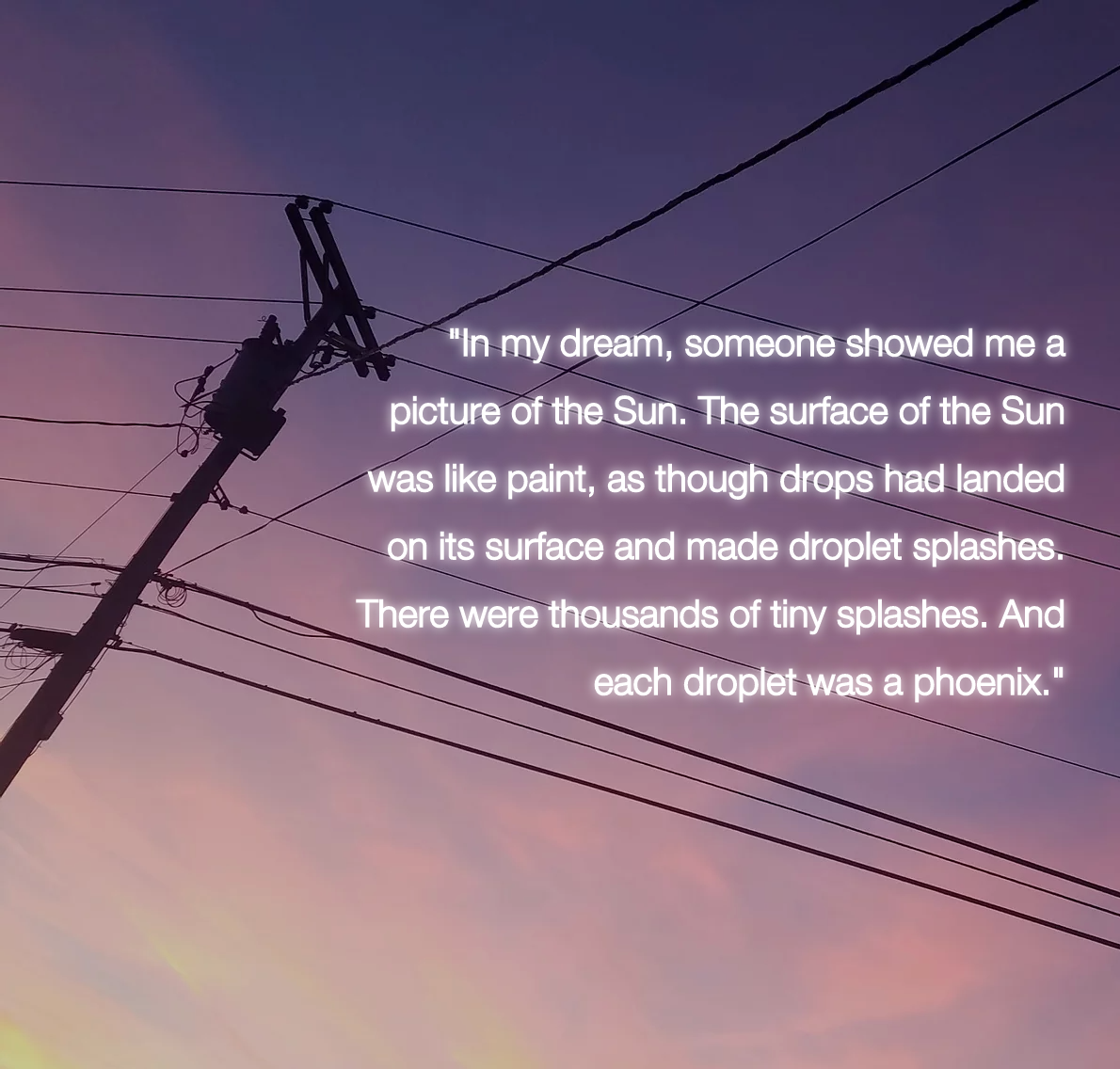
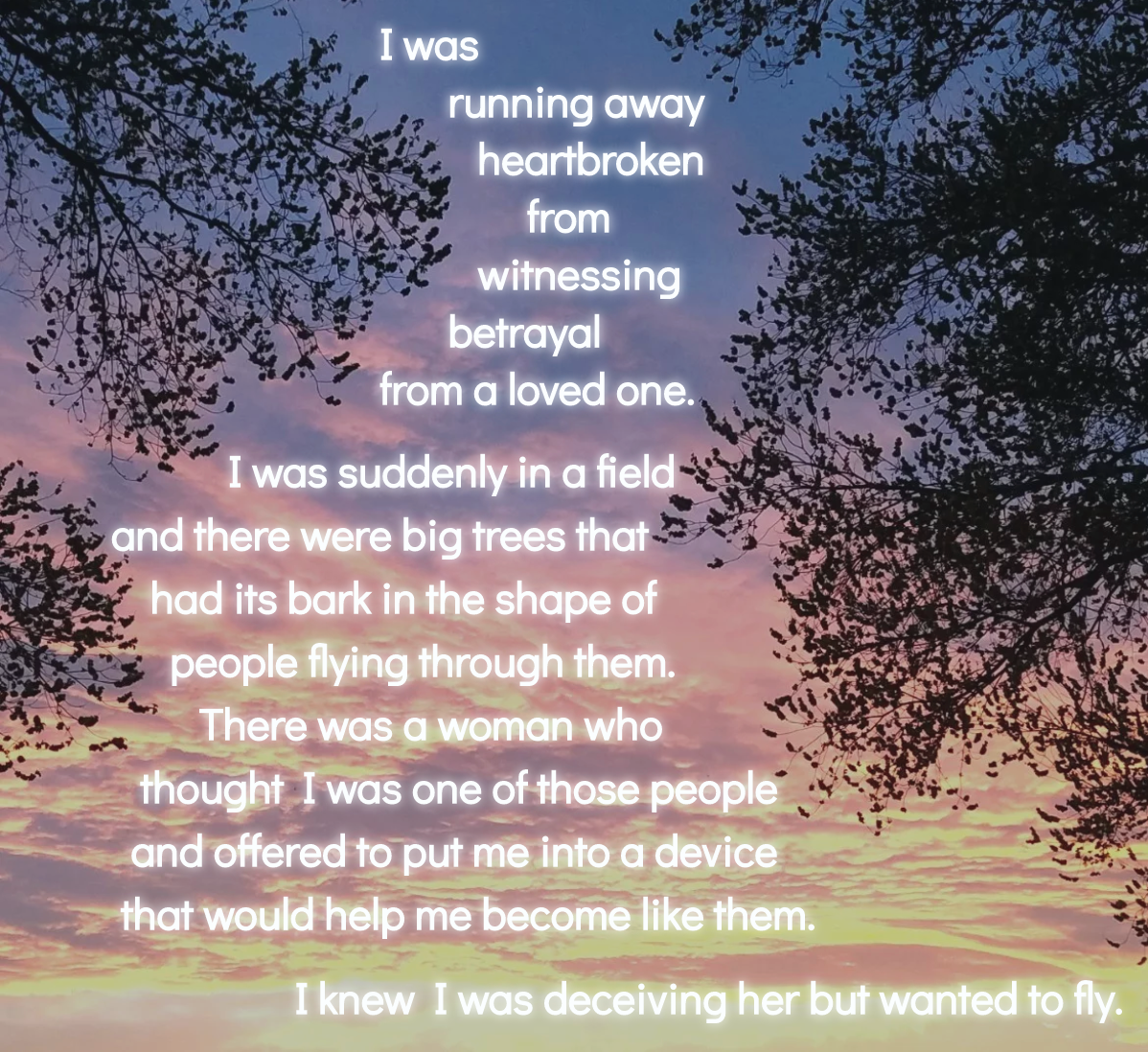

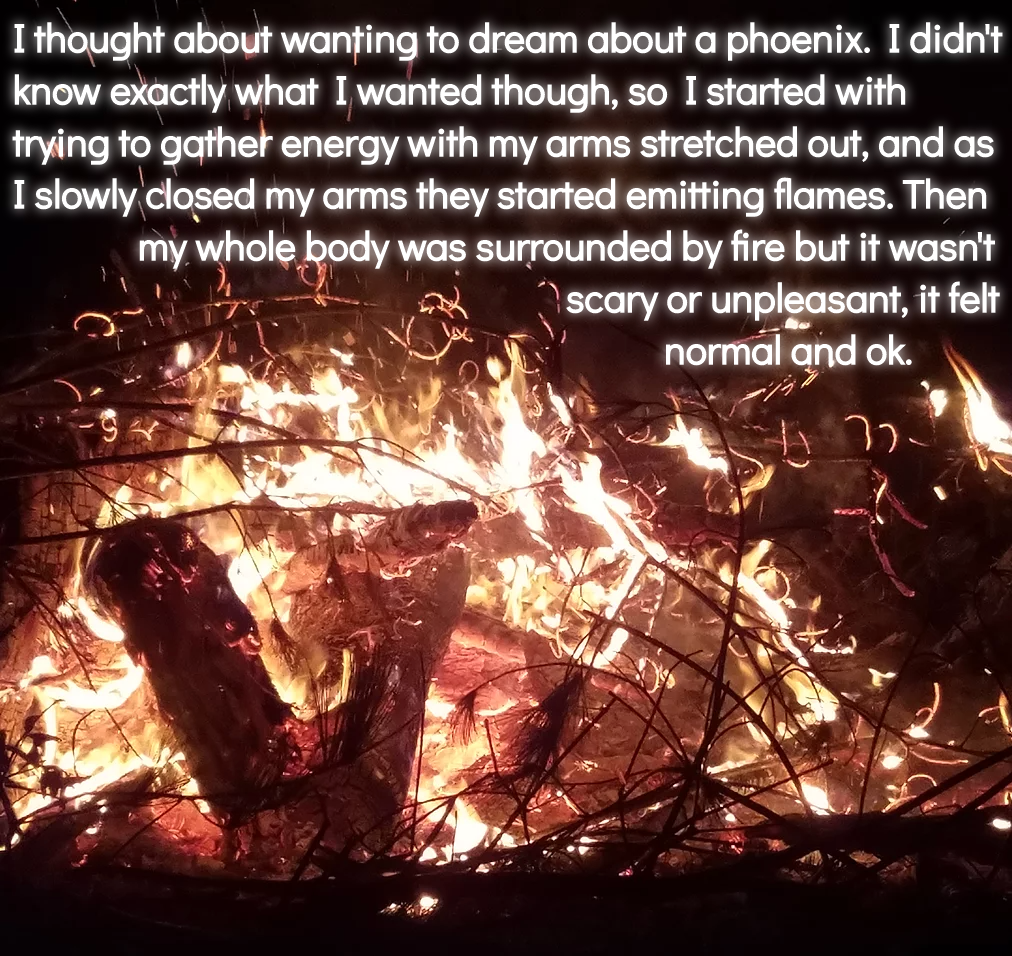
KH: That's so cool. I love hearing the story from your perspective. Also the whole thing about science. In the future vision lab should do more things with art and science. I know Matt Blumberg, for example, really wants to work on that more too. But I love the idea of these really rigorous, but extremely strange side explorations.
TR: Yeah, that's what I'm all about. This is what, where I'm trying to take my life.
KH: So final question is about, has Vision Lab influenced any of your directions for the future? Or just more generally, what do you feel inspired to do that is visionary, like in the future or out of the Phoenix or whatever, where do you see yourself going with all of this visionary impetus?
TR: Yeah. So Vision Lab is actually like a really huge, huge thing in my life. Um, and definitely was a huge part in me discovering what I want to do with my life. And what I think I am capable of doing. And, um, it's been very important to me. Before I came to Vision Lab, I was just coming out of high school and didn't know anything about what I might want to do in life. I guess I was thinking, Oh, I like art. And I like my dream stuff, but like, that's not a job. I can't like, I can't study that, you know? Um, and then kind of meeting all of you guys and learning about what you guys all do really kind of opened up a lot of ideas for me. Um, and yeah, since this past year I've been applying to four year colleges to transfer to. I really do want to do research and I want to do dream research and I want to use my scientific knowledge to create innovative art. Um, and that's a pretty straight goal for me now. And Vision Lab was a really big part in that. And me discovering that. Um, so yeah, I, I, I hope to create my own like fully encompassing dream theory. Cause I have little, I have little bits that I've been working up. Um, but I just, I need to combine and I need to apply them and do research on them. But, I would really like to do that. I would like to work with other dream scientists and in that niche, um, And work on technology. Um, and yeah, but we'll, we'll see. Cause I, um, my first goal is let's go to college and let's learn some things because right now I'm like, I have a lot of like specialized knowledge. About sleep and dreams. And I don't know a lot of actual biology, so I'm going to go fill in those gaps and do that.
KH: Amazing! I never really knew all of this. I mean, I think I knew bits and pieces, but I never like said all of that before. Like that's so cool. You know, and also like, I think any of us will, would be so thrilled to support you in any way. Like, like if you want me to take a look at your essays for these colleges or write a letter of support or something, like I would be really happy to do that, you know? Do you think that you're going, like, where do you, where do you want to end up going.
TR: Yeah. So, um, I have a bunch of ideas. Some are incredibly ambitious. I'm applying to Brown university and also MIT, um, which I think I do have a chance of getting into, but we'll see. And also, um, I am applying to Hampshire college.
KH: Oh, Hampshire is so great.
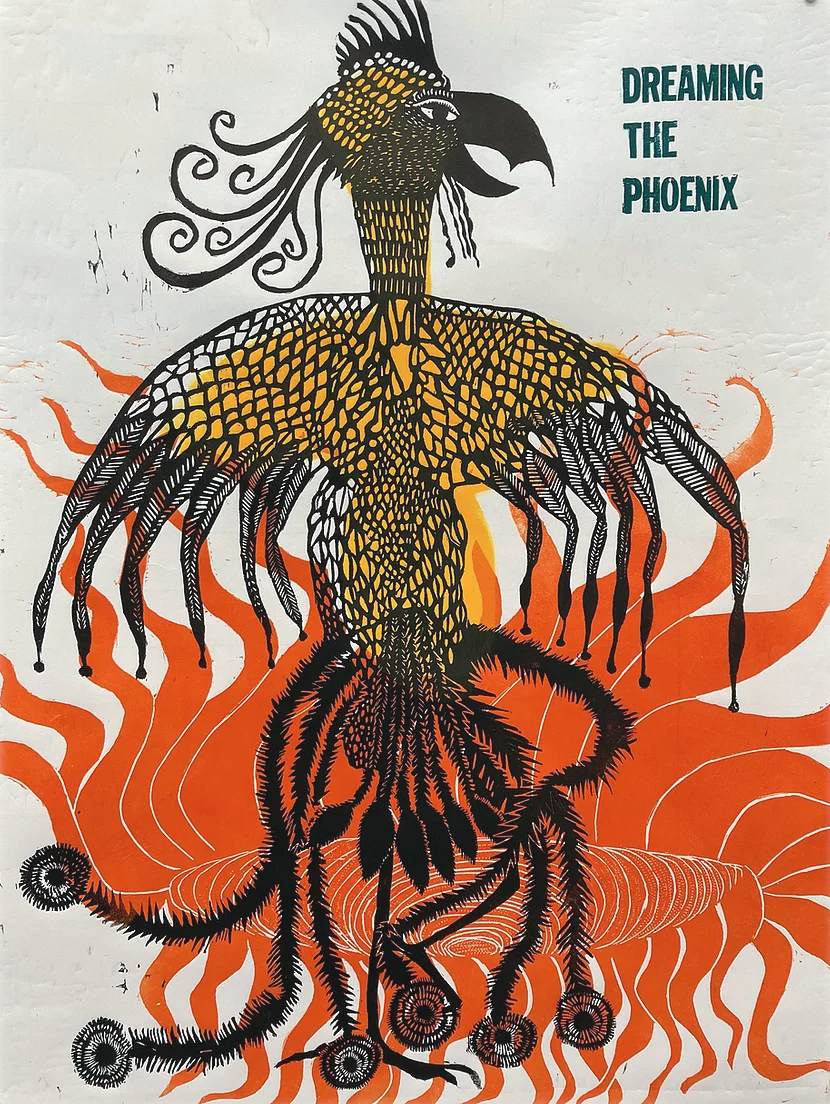
TR: I, I, I really liked them. Um, and also Rochester university. There's a dream researcher I know there.
KH: Oh, great. Yeah. So we'll see. Yeah. Good luck with all of that. That's so,
BA: and I just wanted to say support you, you reignited me, you know, I started my kind of academic experience with, studying psychoanalysis and young and dream theory and.
I had not thought about it and so long. And then you came along and you were like, Hey dreams. And I was like, yes, I, I have a muscle memory of that. Let's go. And now I am more interested in dreams again. and just like I offered, I'm here to support you in any way that you may need. Um, you know, I've done a sleep and dream research, um, at MGH. I have no doubt that you're gonna, you're gonna get really, you know, you're gonna fly high with this,
KH: I’m so thrilled with your passage into the new. And I also like. I really hope that there are things that catch you up with a vision lab in the future too, because I really love working with you. And I think the first time you and I talked was like, sometime after that heart performance, do you remember? We went out to the blue bottle and we had this whole conversation that was like two hours long, like just talking and talking. And I just felt like. I don't know, I felt so thrilled. Like I felt like I was encountering a real friend who I've somehow it was almost like I already knew you, you know? Yeah. It was really, it was really so beautiful. Like you are so lucid, like beyond any dream. I have two questions for you. One is. How is the Eagle nest?
TR: It's so amazing. I'm so happy that you are living there. And I really like your friend, Joe, too. Yay. Isn't the morning light. Really beautiful. So all of the light, it's a beautiful, beautiful place. Um, it feels like a tree house in like the most fun, um, cozy kind of way. And I've been feeling very connected to the birds.
KH: Yeah. You can see them circling around, right?
TR: Yeah. Yeah. I, it's really great being here and it's like, it's such a good spot. Um, and I've been sitting on that roof.
KH: Good, good. That roof is so great for watching sunsets and sunrises and you can actually see all of the fireworks on the 4th of July. Oh, it's just, it's great for like coffee, you know?
TR: Oh yeah, yeah. The other day I was sitting actually, Oh, it was inaugurated one day on inauguration day. I was sitting on that roof and I heard somewhere in the neighborhood, someone starting to play the Star-Spangled banner on trumpet, kind of weirdly beautiful moment. And then like, after, after they stopped, I started clapping and another person from like another far away rooftop, I guess,
-----
